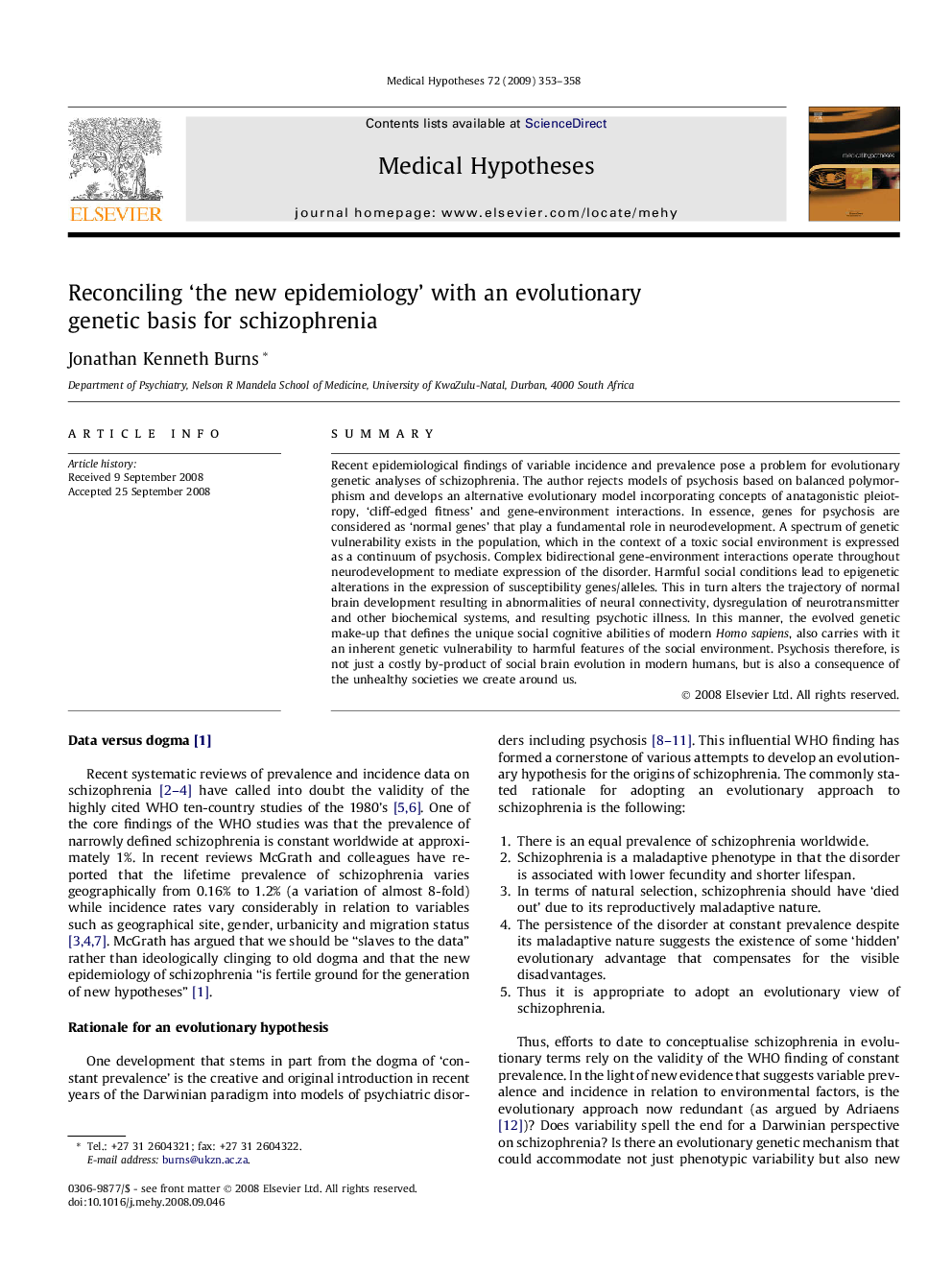| کد مقاله | کد نشریه | سال انتشار | مقاله انگلیسی | نسخه تمام متن |
|---|---|---|---|---|
| 2491427 | 1115086 | 2009 | 6 صفحه PDF | دانلود رایگان |

SummaryRecent epidemiological findings of variable incidence and prevalence pose a problem for evolutionary genetic analyses of schizophrenia. The author rejects models of psychosis based on balanced polymorphism and develops an alternative evolutionary model incorporating concepts of anatagonistic pleiotropy, ‘cliff-edged fitness’ and gene-environment interactions. In essence, genes for psychosis are considered as ‘normal genes’ that play a fundamental role in neurodevelopment. A spectrum of genetic vulnerability exists in the population, which in the context of a toxic social environment is expressed as a continuum of psychosis. Complex bidirectional gene-environment interactions operate throughout neurodevelopment to mediate expression of the disorder. Harmful social conditions lead to epigenetic alterations in the expression of susceptibility genes/alleles. This in turn alters the trajectory of normal brain development resulting in abnormalities of neural connectivity, dysregulation of neurotransmitter and other biochemical systems, and resulting psychotic illness. In this manner, the evolved genetic make-up that defines the unique social cognitive abilities of modern Homo sapiens, also carries with it an inherent genetic vulnerability to harmful features of the social environment. Psychosis therefore, is not just a costly by-product of social brain evolution in modern humans, but is also a consequence of the unhealthy societies we create around us.
Journal: Medical Hypotheses - Volume 72, Issue 3, March 2009, Pages 353–358